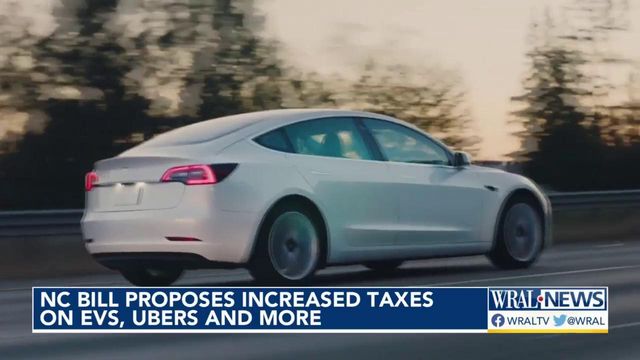New tax on Uber, Lyft seen as partial answer on NC road funding
A bipartisan effort to boost transportation funding in North Carolina by adding a small tax to ride-share services such as Uber and Lyft moved ahead at the statehouse Wednesday.
The proposal would also allow more toll roads in the state, and it would boost fees on electric vehicles and increase the purchase tax on expensive vehicles.
Senate Bill 354 is part of a long-running effort to come to terms with the North Carolina’s transportation needs, as the state’s population grows and the gas tax revenue that funds the lion’s share of transportation projects struggles to keep pace. Lawmakers are looking for new revenue sources, particularly as a rise in fuel efficiency and the popularity of electric vehicles cuts gasoline consumption and, thus, revenue.
“We are facing a fiscal cliff,” said state Sen. Vickie Sawyer, a bill sponsor. “And it takes political courage to put these ideas out there.”
The bill, which may change considerably as it moves through the legislative process, calls for:
- Increasing the state’s electric vehicle registration fee from $140.25 to $180.
- A new $90 annual registration fee for hybrid vehicles.
- Removing the tax cap on vehicle purchases. The tax rate would stay at 3%, but a $2,000 cap would go away, boosting taxes on purchases above about $66,700.
- A new per-ride tax on Uber, Lyft and similar companies. The bill has a flat 50 cent tax on exclusive rides and 25 cents for shared ones, when passengers don’t know each other. That would start in 2024 and increase in future years based on the same calculations used to set the state’s gasoline tax.
- A boost in the cap on tolled road projects that can be built through public-private partnerships, going from three authorized around the state to six.
North Carolina senators, including Sen. Mike Woodard, are proposing some new fees to make up for some of the loss.
"Our argument is, you've got to invest, because you're going to change the way you're purchasing, you're going to change the fuel that you're that you're using," Woodard said. "And that's going to mean these old systems of gathering revenue are soon going to be extinct."
The bill passed the Senate Transportation Committee Wednesday on a unanimous vote, but Sawyer said she expects efforts to amend the measure during its next stop, in the Senate Finance Committee. Among other things, truck drivers are concerned that removing the $2,000 cap on vehicle purchase taxes will hurt small truck driving businesses, because the rigs are expensive.
“We are absolutely open [to changes],” Sawyer said of the bill. “This is not set in stone.”
Sawyer also acknowledged toll roads aren’t popular. And there was some pushback in committee on the increase in electric vehicles fees, given North Carolina’s concerted — and successful — efforts to recruit electric vehicle manufacturing and component suppliers to the state.
Sawyer said electric vehicles are typically more expensive than gas-powered ones, and that the annual registration fee would still be less than the average gasoline-car driver pays each year in gas taxes.
Toyota Prius owner Ayako Katsumata got a hybrid to save money on gas. She thinks the proposed fee is too high.
"I really don’t like such a price for my car," Katsumata said. "Therefore, I would like to find some improvement on that."
Woodard says that’s still less than most drivers of gas-powered cars are paying.
"Our transportation system should be based on user fees, so if you use the roads, you've got to pay for the roads," Woodard said.
It's not clear yet how much of a fight the ride share tax might generate. Uber's head of policy and communications for the southern United States, Javier Correoso, declined to take a hard position on the proposal Wednesday.
"Uber applauds the leadership of Senator Sawyer in bringing together a diverse and comprehensive group of transportation stakeholders to address infrastructure needs in North Carolina," Correoso said in a statement.
"We look forward to working with the General Assembly on a plan that keeps ride share access affordable and reliable for North Carolina residents," he said.
A Lyft spokesperson didn't immediately respond to a request for comment.
Lawmakers have discussed the need for more transportation funding for years, and last year took a major step, agreeing to transfer hundreds of millions of dollars a year in state sales-tax revenues from the general state budget to the highway fund. By 2025 the amount will hit about $600 million a year.











